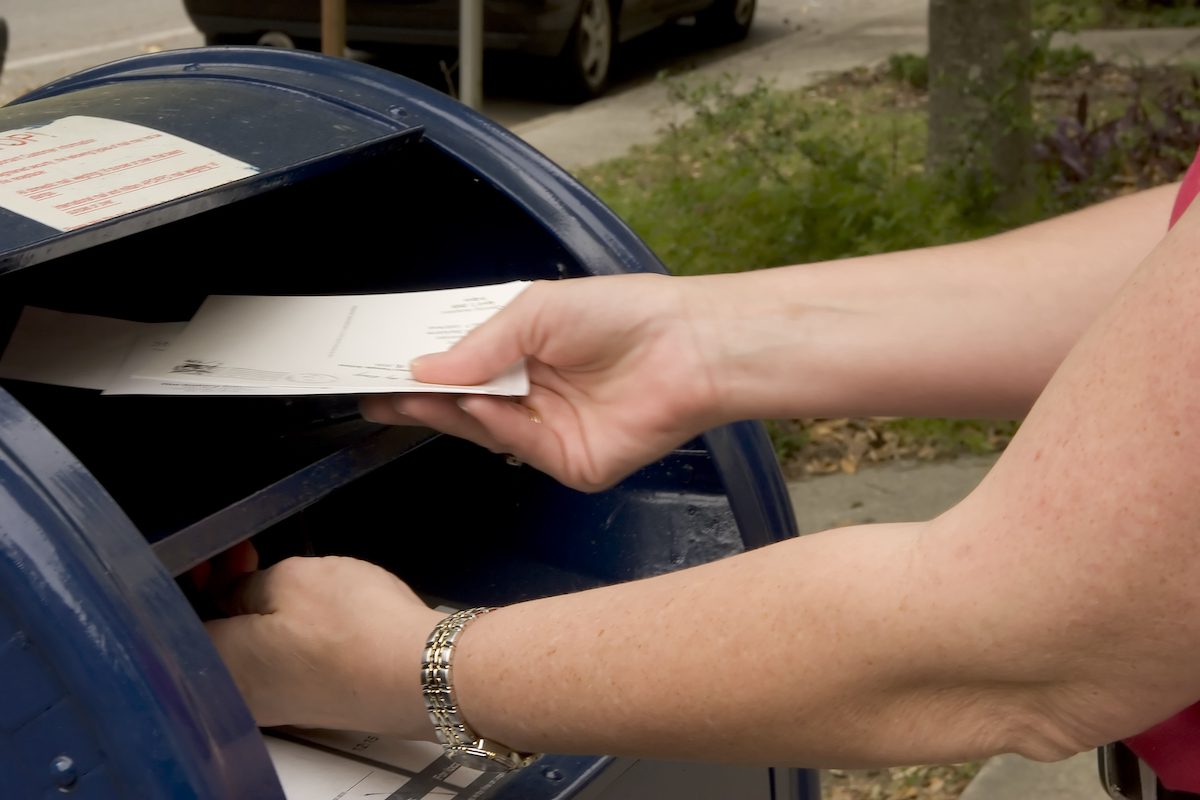How to Write a Landlord Reference Letter for a Former Tenant
As a landlord, you'll have a lot of different tenants. Some will stay just a year, others may rent for longer. But eventually, they'll all move on. Saying "good-bye" doesn't mean you won't ever hear from them again. Sometimes your tenants go from renting your home to renting somewhere else. When that happens, they might need a landlord reference letter from you.

Having a landlord recommendation letter carries a lot of weight for a prospective tenant. As their previous landlord, you can verify what type of tenant they were. You can confirm they paid rent on time, were courteous and maintained the property.
However, you may not always get asked to write a tenant recommendation letter for someone you liked. It's up to you to decide when, and for whom, you'll write letters. With a little help, you can streamline the process to really get our message right.
When to complete a landlord reference letter
In theory, when a tenant wants you to write them a reference, they'll contact you first. Then, if you agree, you can put your thoughts into writing and submit a formal letter.
Sometimes, though, they'll simply stick your name down on their new rental application and you'll get a call from the prospective landlord. Getting caught off guard isn't always pleasant, and you can always say "no" to providing the referral, but if you say "yes" the call shouldn't take long, and you'll only have to answer a few, basic questions.
These questions can include:
- Did the tenant always pay their rent on time?
- Were any terms of the lease ever broken?
- Did the tenant damage the property?
- What condition did the tenant leave the property in when they left?
Breezing through these questions over the phone is great, but they're also helpful in directing the content of a formal landlord reference letter, as well. This is the information other landlords are looking for. It's what you'd want to know about prospective tenants, as well. They're the perfect guide to ensure you're putting relevant information into any referral you write.
When to say 'no'
There are no specific scenarios where you should say "no" to a tenant asking for a reference. Even if the tenant wasn't so great, you would want any future landlords to be aware of your experience with them.
Telling a tenant "no" should only happen if you personally don't have time to get the letter done. It may feel daunting to put all these details on paper in a formal way, but don't let that stop you from agreeing to help. These letters are important, and it's highly likely you'll appreciate getting them from your prospective renters, too.
Use a template to write your landlord recommendation letters so you can return the favor without much difficulty.

How to approach a referral
Whether you use a standard template for your landlord reference letters or write each one from scratch, setting the right tone is important. You want your letter to come off as both informative and professional, so make sure you take your time with it.
Stick to the facts
Honesty is an essential part of writing a recommendation letter. Even if the truth isn't always glowing, you need to present the facts about your previous tenant. If you're worried they'll try to deny your statements, use evidence to back them up. It's OK to attach copies of receipts and notices to prove your point.
Stay professional
Your tone should remain professional when writing a reference letter, even if you have some serious feelings about this particular tenant. Again, use facts and not opinions. You also want to stick to information related to renting and keep any other information about the tenant to yourself. Sharing personal information could put you in violation of the Fair Housing Act.
What to include in a landlord referral letter
Aside from the basic information, all formal letters should include who the letter is for, a greeting, your name and contact information and a signature. The meat of your referral letter needs to focus on the tenant.
The letter itself doesn't have to be long, but you need to hit all the highlights, including:
- Whether they paid rent on time
- How well they cared for the property
- Their overall behavior
- Any issues with neighbors, pets, noise, etc.
- How they handled maintenance issues
- Whether they broke the lease in any way
You could approach each of the above issues with a single sentence to keep the letter short and sweet but touch on each item to remain thorough.
The only other piece to your recommendation should be an overall referral for this tenant. A "they were great" or an outright "stay away." You could even recommend the tenant with a word of caution.
As long as you're honestly disclosing all the relevant information, you're doing your part.

When your letter is complete
Once you're done writing your tenant recommendation letter, the next step is to deliver it to the prospective landlord. You should receive instructions on how to do this along with the request.
You may have to mail it, scan and email it or contact the tenant to retrieve it for delivery. The first two options are what you should aim for since it's easier if there's no middle man reviewing what you wrote. You don't want to give your old tenant time to read the letter and argue with you.
If you have no choice but to give it to your tenant, and you don't want them to read it, pass it on in a sealed envelope. The tenant can still open the envelope without you knowing, but sealing it gives it a more official feel. It may deter some tenants from prying.
Make sure delivery is prompt, regardless of the method. The tenant's rental application for their new place could hinge on your referral.
A sample template to make things easier
Consider using this landlord reference letter template to knock out these referral requests with ease. Simply download this sample letter and update all sections in parentheses.
Referral letter for (Tenant name)
[Date]
To whom it may concern:
I'm writing to you today on behalf of (Tenant name) who was my tenant at (Address of your property) from (Start date) until (End date). Overall, they were a (Insert a descriptive word of your choice here) tenant, and I (Recommend, do not recommend]) you consider them for your rental property.
Specifically, (Tenant name):
(Update below based on tenant's behavior. Only include the bullets that pertain to that tenant — whether positive or negative. Insert more information if necessary.)
- Paid rent on time
- Missed rent (Describe in more detail if necessary)
- Maintained and left the property in good condition
- Left the property in poor condition
- Was polite, respectful and communicative
- Was rude, disrespectful and hard to communicate with
- Had no issues with neighbors and no noise complaints
- Received (List the number) of complaints from neighbors
- Kept their pet leashed and cleaned up after them properly
- Did a less-than-adequate job of managing their pet in common areas
- Addressed maintenance issues in a timely manner
- Didn't follow protocol regarding maintenance issues
- Never broke the lease
- Broke the lease (Explain in which way)
Should you have any additional questions, please don't hesitate to contact me directly.
Sincerely,
(Your name)
(Your email address)
(Your phone number)
Keep it short and honest
By focusing on the relevant details and aiming to keep it short, your landlord reference letter will be both informational and honest, giving your good tenants the best chance of getting that next rental. It will also help other landlords make the best decision possible about the next renter.
